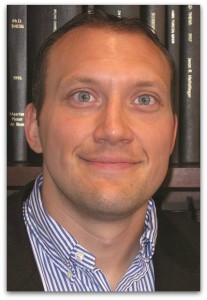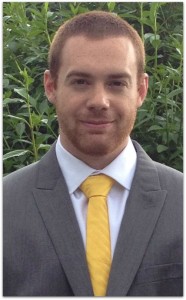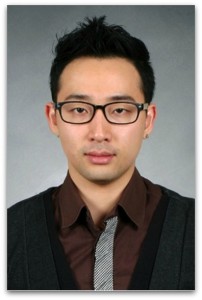ECS’s Energy Technology Division has presented three distinguished student awards to be accepted at the 227th ECS Meeting this May in Chicago, IL.
The Energy Technology Division Supramaniam Srinivasan Young Investigator Award will be presented to William Mustain of the University of Connecticut.
 William Mustain earned a Ph.D. in Chemical Engineering at the Illinois Institute of Technology in 2006, followed by two years as a Postdoctoral Fellow in ECS President Paul Kohl’s research group at Georgia Tech. He went on to join the Department of Chemical & Bimolecular Engineering gat the University of Connecticut in 2008.
William Mustain earned a Ph.D. in Chemical Engineering at the Illinois Institute of Technology in 2006, followed by two years as a Postdoctoral Fellow in ECS President Paul Kohl’s research group at Georgia Tech. He went on to join the Department of Chemical & Bimolecular Engineering gat the University of Connecticut in 2008.
Over the past twelve years, Prof. Mustain has worked in several areas related to electrochemical energy generation and storage, including: catalysts and supports for proton exchange membrane and anion exchange membrane fuel cells and electrolyzers, high capacity materials for Li-ion batteries, the purposeful use of carbonates in low temperature electrochemical systems, and the electrochemical conversion and utilizations of methane and CO2.
Take a peak at his award address, “Near Room Temperature Conversion of Methane to Methanol.”
The Energy Technology Division Supramaniam Srinivasan Young Investigator Award was established in 2011 to recognize and reward an outstanding young researcher in the field of energy technology.

The Energy Technology Division Graduate Student Award will be presented to Scott Cushing of West Virginia University.
Scott Cushing is currently fin ishing his Ph.D. dissertation in Physics at West Virginia University, where he is advised by Prof. Nianqiang (Nick) Wu and Prof. Alan D. Bristow. Through his research, Cushing aims to gain a fundamental understanding of plasmon-enhanced solar energy conversion processes. His thesis involves understanding how plasmonics can improve light absorption above and below the band edge in solar materials.
ishing his Ph.D. dissertation in Physics at West Virginia University, where he is advised by Prof. Nianqiang (Nick) Wu and Prof. Alan D. Bristow. Through his research, Cushing aims to gain a fundamental understanding of plasmon-enhanced solar energy conversion processes. His thesis involves understanding how plasmonics can improve light absorption above and below the band edge in solar materials.
Cushing’s investigations on energy and charge transfer also span into semiconductor heterostructures, fluorophores, and plasmonics to improve application such as water splitting and optical bio-sensors – focusing on how these processes occur on coherent and ultrafast time-scales.
You can check out Cushing’s research on plasmonic enhancement of solar energy conversion in a special issue of Interface here.
And take a peak at his award address, “Plasmonic Light Absorption Enhancement Mechanisms in Semiconductors Above and below the Band Edge.”
The Energy Technology Division Graduate Student Award was established in 2012 to recognize and reward promising young engineers and scientists in fields pertaining to the Division. The awards are intended to encourage the recipients to initiate or continue careers in this field.

The second Energy Technology Division Graduate Student Award will be presented to Haegyeom Kim of Seoul National University.
 Haegyeom Kim is a Ph.D. candidate at the Department of Materials Science and Engineering at Seoul National University. Here, Kim studies developing carbon based electrode materials and graphite derivative materials for energy storage devices such as Li rechargeable batteries, Na rechargeable batteries, and hybrid supercapacitors.
Haegyeom Kim is a Ph.D. candidate at the Department of Materials Science and Engineering at Seoul National University. Here, Kim studies developing carbon based electrode materials and graphite derivative materials for energy storage devices such as Li rechargeable batteries, Na rechargeable batteries, and hybrid supercapacitors.
Kim received his B.S. from Hanyang University and his M.S. from the Korea Advanced Institute of Science and Technology. While obtaining his M.S., Kim studied developing graphene based electrode materials for lithium rechargeable batteries including anodes and cathodes. Kim’s accomplishments have been recognized by the Korea Section of ECS, where he was presented with the Student Award in 2014.
Take a peak at his award address, “All-Graphene Energy Storage Device for High Energy and Power Density.”
The mission of ECS’s Energy Technology Division is to encourage and stimulate research and development on new and existing technologies that will improve efficiency, reduce energy use, lower costs, and result in a cleaner environment.
ECS offers a variety of options for students to get involved, including a robust student chapter program. For more information, please click here.

